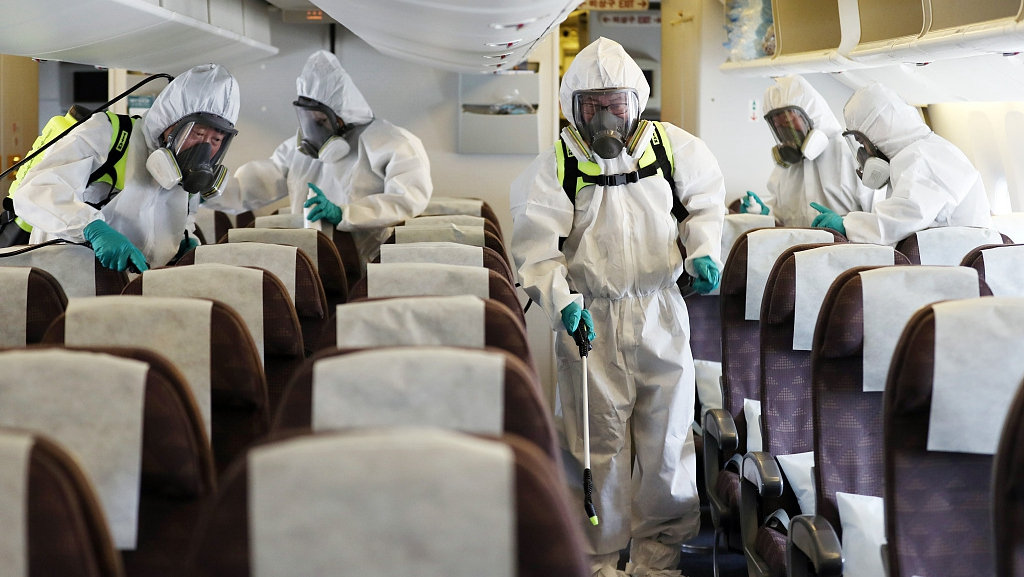

A passenger airplane from Dubai is sterilized for Middle East Respiratory Syndrome (MERS) at Incheon, South Korea to prevent the spread of the virus, September 13, 2018. /VCG Photo
The number of infections and deaths caused by the Middle East Respiratory syndrome coronavirus (MERS-CoV) has reduced worldwide, a study released on Monday said.
Global efforts targeted at early detection of the virus prevented around 1,465 cases and between 300 and 500 deaths.
Identified for the first time in 2012 in a Saudi Arabia resident, the virus caused global panic with a significant number of deaths. The virus subsequently spread to more than 27 countries, killing 838 people in the last seven years. Around 2,428 laboratory-confirmed cases of MERS had been reported till April 2019.
"We believe that affected countries are reducing the global threat of MERS through addressing knowledge gaps with regard to transmission, enhancing surveillance, and strengthening the ability to detect cases early and contain hospital outbreaks," study authors wrote in a research letter published in the journal Emerging Infectious Diseases.
The MERS-CoV, a respiratory virus, has been fatal in approximately 35 percent of patients. The virus is spread from direct or indirect contact with dromedary - Arabian single-humped - camels. But the route of transmission from animals to humans is not fully understood.
The virus doesn't spread from person to person unless there is close contact. But during the course of treatment in hospitals, patient's proximity resulted in large outbreaks.
The most notable outbreaks in Saudi Arabia and the Republic of Korea in 2014 and 2016, respectively, resulted in an economic impact of 12 billion U.S. dollars.
In order to prevent such outbreaks, the government should ensure restriction on the camel movement and ensure a robust channel of communication nationally and internationally to prevent the spread of the virus, researchers suggested.
The international community and affected countries have a collective and shared responsibility to curtail a major health security threat such as MERS in the Middle East and beyond," the researchers added.

Copyright © 2018 CGTN. Beijing ICP prepared NO.16065310-3
Copyright © 2018 CGTN. Beijing ICP prepared NO.16065310-3